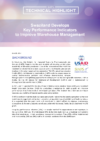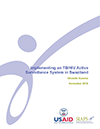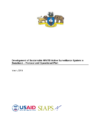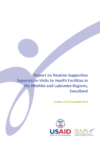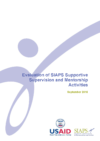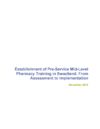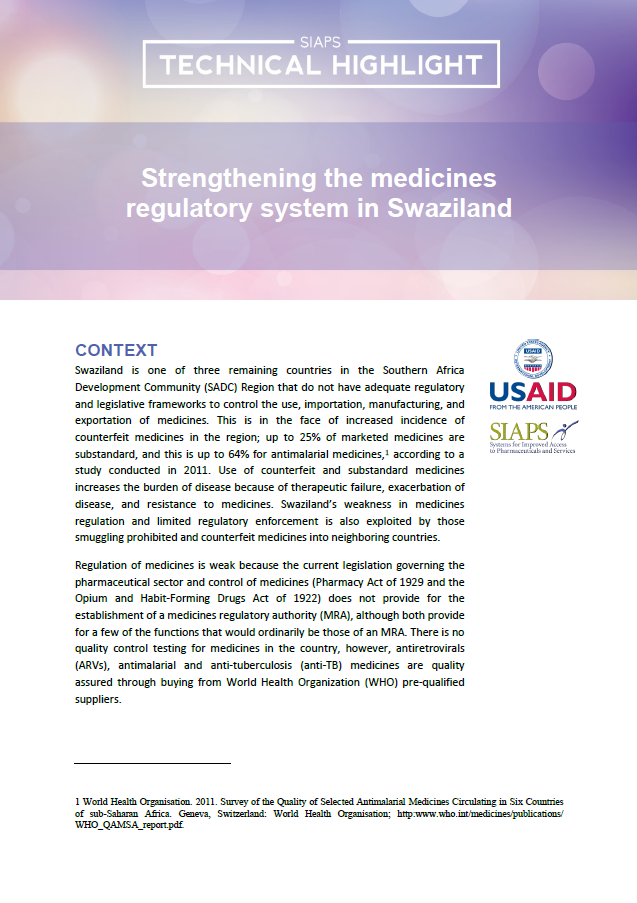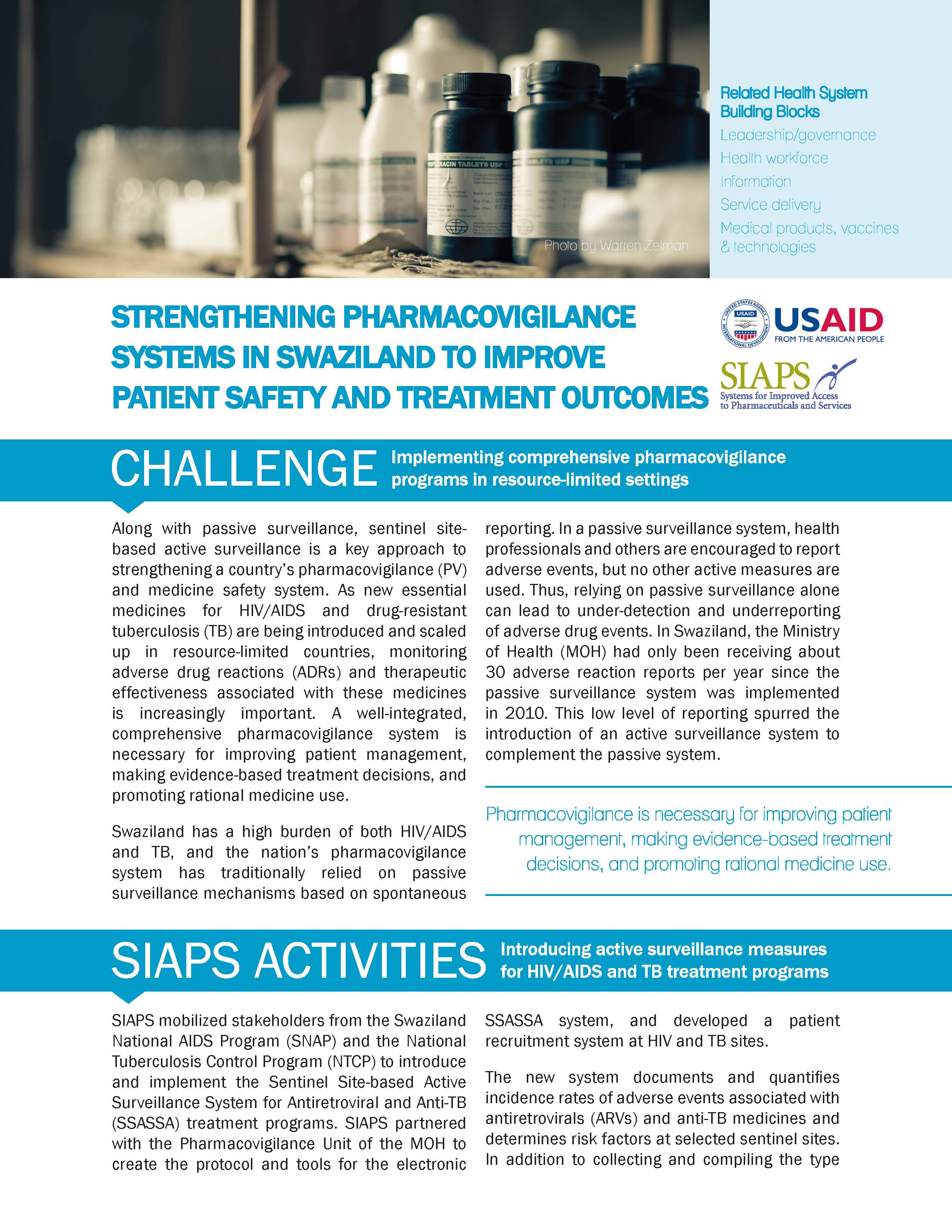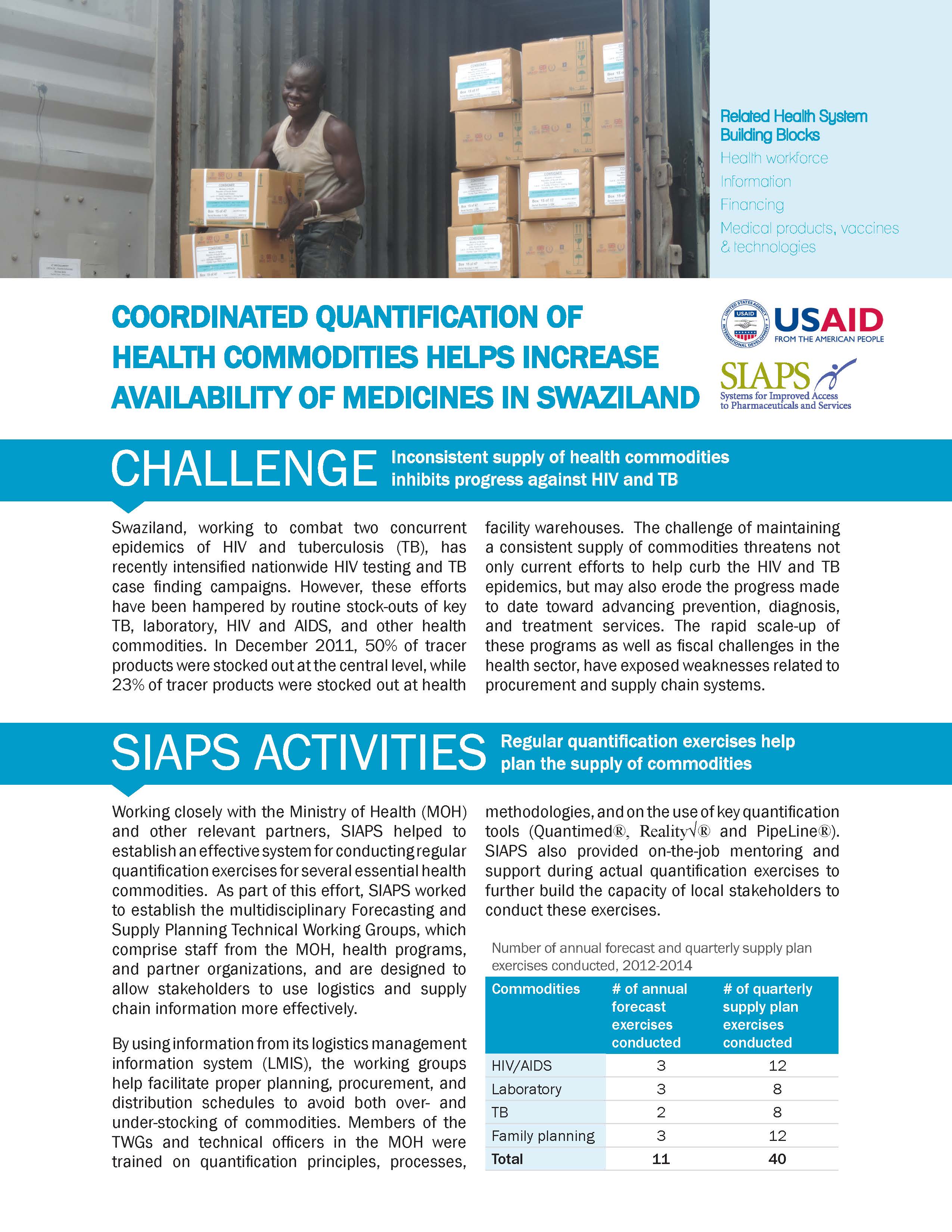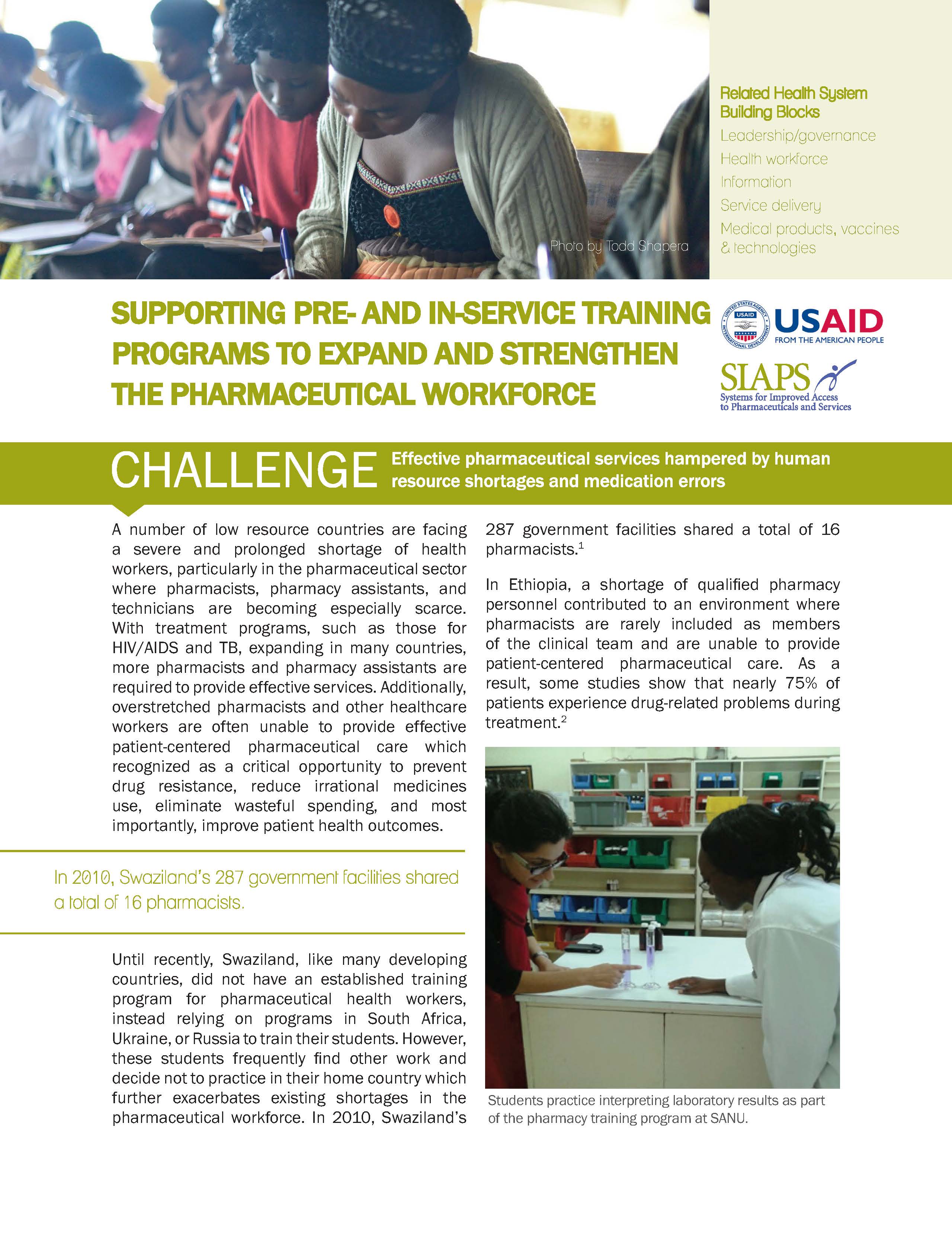In 2014, SIAPS supported the Ministry of Health (MOH), Central Medical Stores (CMS), and Swaziland Health Laboratory Services (SHLS) by conducting a workshop to build capacity and improve performance of staff that works in warehouse operations. The Imperial Health Services warehouse was used as a model to showcase warehousing best practices.
SIAPS supported the Swaziland Ministry of Health (MOH) in mobilizing key stakeholders from the Swaziland National AIDS Program and the National Tuberculosis Control Program to introduce and implement an active surveillance system for patients on ARVs and anti-TB treatment. SIAPS provided technical assistance to MOH’s National Pharmacovigilance Unit (NPVU) to develop the protocol and tools to implement … Read more
A pharmacovigilance system, through active surveillance in sentinel sites, is proposed to monitor the safety and tolerability of antiretroviral medicines (ARV) and anti-tuberculosis (TB) medicines at antiretroviral treatment (ART) clinics and TB clinics in Swaziland. The goal of this activity is to develop, implement, and demonstrate the local feasibility of a practical and sustainable pharmacovigilance … Read more
Since October 2015, SIAPS has been supporting hospitals, health centers, and high volume clinics at the request of regional implementing partners in the Hhohho and Lubombo regions. This report documents the support that facilities have received, progress made, and recommendations for future support.
This report presents highlights of SIAPS’ work to capacitate health workers on proper pharmaceutical service delivery and stock management over a four-year period (2012 to 2015). SIAPS did a baseline assessment at health facilities (HF) in 2012, and then from 2013 to 2015, its technical advisors provided assistance to address the identified performance gaps. The … Read more
To assess the feasibility of launching a pharmacy training program or programs in Swaziland, the assessment considered the establishment of different pharmacy training programs with different training models, taking into consideration market requirements in both the public and private sectors. The feasibility assessment recommended the ideal curriculum to be adopted for Swaziland.
Swaziland is one of three remaining countries in the Southern Africa Development Community Region that do not have adequate regulatory and legislative frameworks to control the use, importation, manufacturing, and exportation of medicines. This is in the face of increased incidence of counterfeit medicines in the region; up to 25% of marketed medicines are substandard, … Read more
SIAPS mobilized stakeholders from the Swaziland National AIDS Program (SNAP) and the National Tuberculosis Control Program (NTCP) to introduce and implement the Sentinel Site-based Active Surveillance System for Antiretroviral and Anti-TB (SSASSA) treatment programs. SIAPS partnered with the Pharmacovigilance Unit of the MOH to create the protocol and tools for the electronic SSASSA system, and developed a patient recruitment system at HIV and TB … Read more
Swaziland, working to combat two concurrent epidemics of HIV and tuberculosis (TB), has recently intensified nationwide HIV testing and TB case finding campaigns. However, these efforts have been hampered by routine stock-outs of key TB, laboratory, HIV and AIDS, and other health commodities. In December 2011, 50% of tracer products were stocked out at the central level, while 23% of tracer products were … Read more
A number of low resource countries are facing a severe and prolonged shortage of health workers, particularly in the pharmaceutical sector where pharmacists, pharmacy assistants, and technicians are becoming especially scarce. With treatment programs, such as those for HIV/AIDS and TB, expanding in many countries, more pharmacists and pharmacy assistants are required to provide effective services. Additionally, overstretched pharmacists and other healthcare workers are often … Read more
